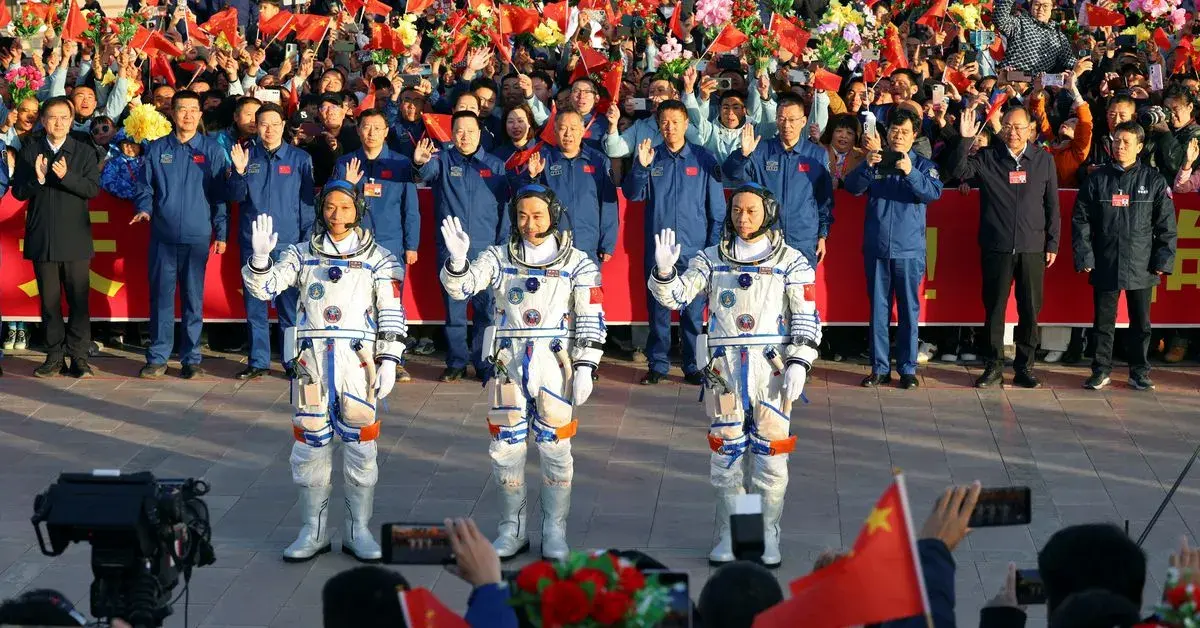The youngest-ever crew of Chinese astronauts departed for China’s space station on Thursday, paving the way for a new generation of “taikonauts” to advance the country’s space ambitions in the future.
Launch recording: https://www.youtube.com/live/ppFLhsZsevI?si=bru2kvbUvwKXrsaG
33 isn’t ‘young’. They’re a mature adult.
They did say youngest, not just young. Technically they’re right, even though I was also expecting a group of 18 year Olds.
Interestingly, it seems the average age is around 44.
Very interesting!
I don’t think “young” when I think of people going to space unless I think of things like the Polaris missions.
More space is good for humanity, hopefully they share their scientific findings outward.
I wish them well.
🤖 I’m a bot that provides automatic summaries for articles:
Click here to see the summary
The spacecraft Shenzhou-17, or “Divine Vessel”, and its three passengers lifted off atop a Long March-2F rocket from the Jiuquan Satellite Launch Centre in northwest China.
By contrast, his fellow Shenzhou-17 crew members Tang Shengjie, 33, and Jiang Xinlin, 35, both travelling to space for the first time, joined China’s third batch of astronauts in September 2020.
China has already kickstarted the selection process for the fourth batch of astronauts, seeking candidates with doctoral degrees in disciplines from biology, physics and chemistry to biomedical engineering and astronomy.
The selection and training process will commence soon for foreign astronauts looking to participate in joint flights to Tiangong, a senior official on China’s manned space program said this year.
In a departure from the NASA-led International Space Station (ISS), where English is the working language, only Chinese is used on Tiangong, making Chinese-language skills a key criteria for foreign participants.
Tiangong, completed in late 2022, can house a maximum of three astronauts at an orbital altitude of up to 450 km (280 miles) and will have an operational lifespan of more than 15 years.
Saved 63% of original text.






